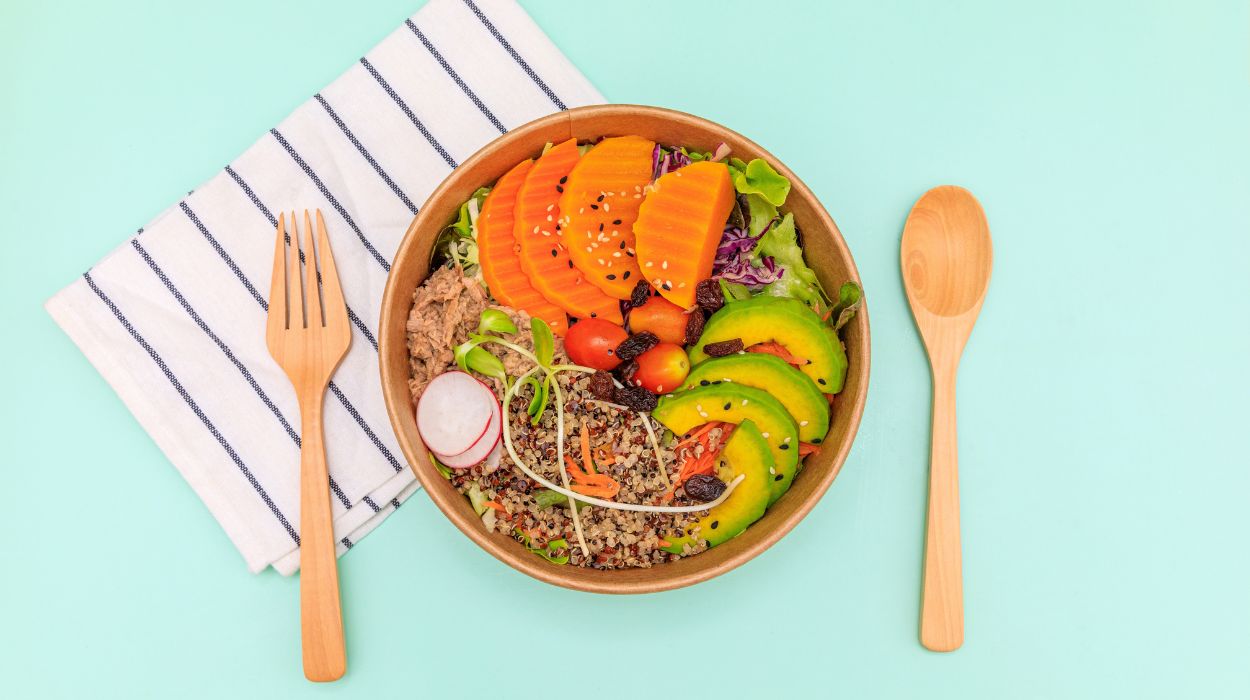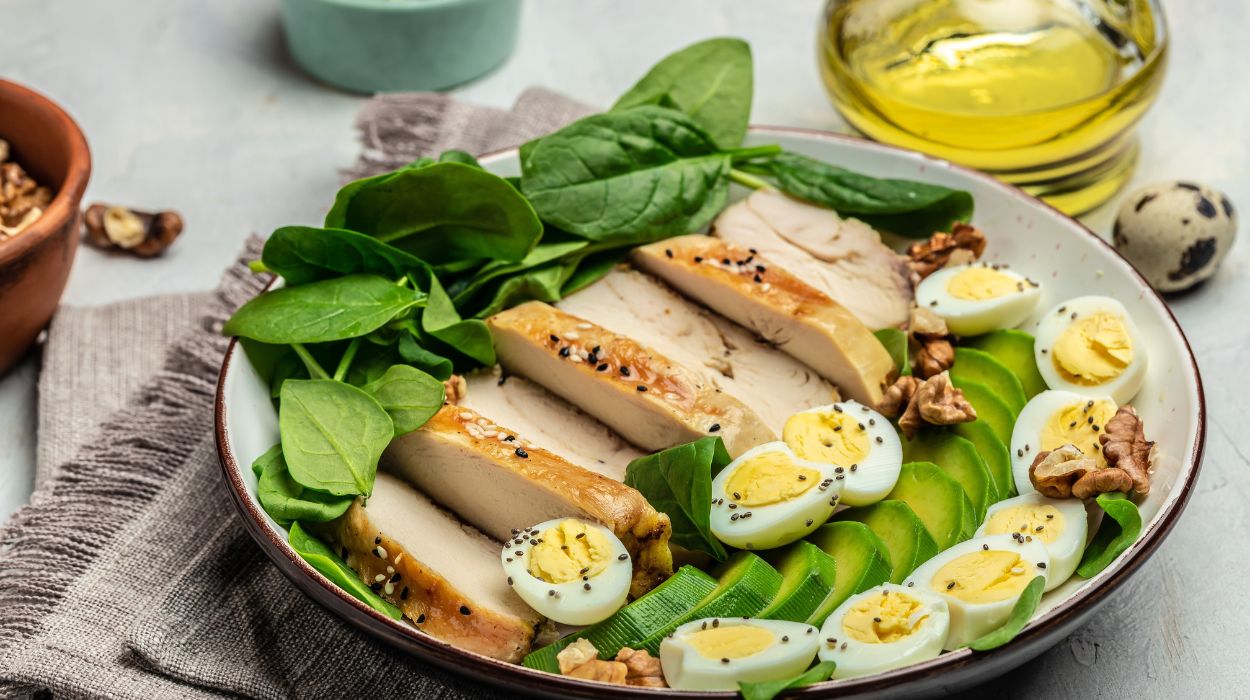 Expert's opinion
Expert's opinion
Expert's opinion
The article is a subjective view on this topic written by writers specializing in medical writing.
It may reflect on a personal journey surrounding struggles with an illness or medical condition, involve product comparisons, diet considerations, or other health-related opinions.
Although the view is entirely that of the writer, it is based on academic experiences and scientific research they have conducted; it is fact-checked by a team of degreed medical experts, and validated by sources attached to the article.
The numbers in parenthesis (1,2,3) will take you to clickable links to related scientific papers.
How Do I Protect My Kidneys On A Keto Diet? Things To Know 2024

Following a ketogenic diet may result in losing weight and promote a healthy lifestyle if done correctly, but can you support normal kidney function while following such a high fat diet? People who follow a keto diet see more balanced blood sugar levels and report an increase in brain health over a short amount of time. If it is followed for months/years, it may increase your chances of kidney damage, kidney stones, and high blood pressure if your keto diet consists highly of animal-based, saturated fats. Like every healthy diet, portion control, along with choosing healthy fats, high protein and low carbohydrate foods will help result in the health benefits you wish.
Is Keto Bad For Your Kidneys?
A well-balanced diet is the key to a healthy lifestyle and weight loss. The keto diet can be used to promote both without harming your kidneys if your food choices are kidney friendly.
How Do I Protect My Kidneys On A Keto Diet?
To prevent kidney disease while on a ketogenic diet, you should focus on eating foods that are lower in salt, phosphorus, and potassium. Part of the kidneys’ role is to help metabolize protein, and a keto diet may overload them. If you are at an increased risk of kidney stones,[1] avoiding leafy greens and legumes will decrease your risk factors.
The goal of a keto diet is to keep protein intake high, carbohydrate intake low, and avoid foods that stress the kidneys. These foods may include:
- Processed meats.
- Bacon.
- Sausage.
- Deli meats.
- Bananas.
- Kiwi.
- Oranges.
- Avocados.
- Apricots.
These foods can also increase your risk factor of developing hyperkalemia, or increased potassium in your blood, which can lead to heart disease, muscle weakness, and in some cases death.
Beans and lentils are typically considered healthy food choices, but people with poor kidney health or existing kidney disease should avoid them due to the high levels of phosphorus. It is also important to avoid processed foods like fast food, instant meals, and packaged food because these foods are high in sodium. An increase in sodium can increase your blood pressure, risk of heart disease, and body weight. The goal with any individualized diet is to make it realistic to follow to reach success. The keto diet can be difficult because it takes increased planning, but there are many keto meal delivery companies that can help you reach your goal weight.
What Happens To The Kidneys During Ketosis?

Ketosis
The keto diet includes consuming low carbohydrates, high fat and high protein throughout the day. It will help your body keep muscle, burn fat, and make you feel less hungry because it puts it in a state of ketosis. Ketosis[2] is the process that occurs when your body does not have enough carbohydrates to burn for energy, so it is forced to burn fat. This process of burning fat for energy leads to the creation of ketones, which the body then uses for fuel.
As research has shown,[3] ketones can be effective for providing energy for the heart, muscles, and kidneys. However, they may not be the best source of fuel for your brain which prefers glucose for energy.
Impact On The Kidneys
This increase in ketones in the body puts excess stress on the kidneys causing them to work harder. Your blood becomes more acidic, therefore forcing your kidneys to excrete more sodium, calcium and potassium. Due to the increase in protein consumption as part of the keto diet, the kidneys must also filter more of the byproducts of the protein being metabolized leading to more fluid and electrolytes in your body. An increase in fluid can lead to changes in blood pressure placing more strain on the cardiovascular system[4] and more work for the kidneys to regulate.
Tips To Protect Your Kidneys On A Keto Diet
Stay Hydrated
Drinking plenty of fluids helps the kidneys to clear toxins like sodium, urea and waste products from the body, lowering the risk of developing chronic kidney disease. Drinking eight to ten eight-ounce glasses of water is recommended to help support good kidney function.
Monitor Your Macronutrients
While on a keto diet, the goal is to remain in ketosis throughout the day. This can be done by sticking to foods that do not cause an increase in insulin, like carbohydrates, and by monitoring your macronutrient amounts.
Carbohydrate intake should be less than 50 grams per day and protein intake should be limited to 40 to 60 grams per day. A keto diet allows your fat intake to be “free” keeping it within a healthy amount. As always you should consult your physician before making any changes in your health regime.
Limit Animal Protein
Consuming too much protein can increase calcium and uric acid levels in the urine which increases the risk of developing kidney stones . Most animal-based proteins, like meats, poultry, cheese, and eggs contain saturated fats. Consider reducing the use of saturated fats by consuming leaner meats and cooking with extra-virgin olive oil instead of butter. Additionally, adding in unsaturated fats like nuts, seeds, avocados, and tofu are good alternatives to animal based fats.
The Benefits Of A Keto Diet Can be Plentiful
When followed well, a ketogenic diet can be very nutritious and beneficial in losing weight, lowering your blood sugar, blood pressure, reducing acne, and decreasing the risk of cancer and polycystic ovary syndrome. The keto diet can be hard on your kidneys because the goal of the diet is to be in ketosis. When planning food consumption carefully, you can put less strain on your kidneys and see the benefits of a keto diet.
Conclusion
An individualized diet, which keeps your entire wellbeing in mind and focuses on what your body needs, is important to staying healthy. A keto diet can help promote losing weight by changing the body’s energy source from carbohydrates to fats, however this change can put increased stress on the kidney. It is important to be aware of potential complications before beginning a keto diet to keep your kidneys safe. As recommended, always consult your physician before beginning a new diet to ensure safety.
Frequently Asked Questions
Ketosis[5] is when body burns fat for energy instead of carbohydrates. Burning fat leads to the creation of ketones, which the body then uses for fuel.
A keto diet increases ketones in the body putting excess stress on the kidneys. The kidneys must excrete more sodium, calcium and potassium, filter more of the byproducts of the protein, manage the increased fluid and electrolytes, and regulate changes in blood pressure.
Staying well hydrated, monitoring your macronutrients and limiting animal protein can help protect your kidneys.
+ 5 sources
Health Canal avoids using tertiary references. We have strict sourcing guidelines and rely on peer-reviewed studies, academic researches from medical associations and institutions. To ensure the accuracy of articles in Health Canal, you can read more about the editorial process here
- O’Kell, A.L., Grant, D.C. and Khan, S.R. (2017). Pathogenesis of calcium oxalate urinary stone disease: species comparison of humans, dogs, and cats. Urolithiasis, [online] 45(4), pp.329–336. doi:https://doi.org/10.1007/s00240-017-0978-x.
- Masood, W., Pavan Annamaraju, Khan, Z. and Uppaluri, K.R. (2023). Ketogenic Diet. [online] Nih.gov. Available at: https://www.ncbi.nlm.nih.gov/books/NBK499830/.
- Masood, W., Pavan Annamaraju, Khan, Z. and Uppaluri, K.R. (2023). Ketogenic Diet. [online] Nih.gov. Available at: https://www.ncbi.nlm.nih.gov/books/NBK499830/.
- and, D. (2023). High Blood Pressure & Kidney Disease. [online] National Institute of Diabetes and Digestive and Kidney Diseases. Available at: https://www.niddk.nih.gov/health-information/kidney-disease/high-blood-pressure.
- Masood, W., Pavan Annamaraju, Khan, Z. and Uppaluri, K.R. (2023). Ketogenic Diet. [online] Nih.gov. Available at: https://www.ncbi.nlm.nih.gov/books/NBK499830/.

